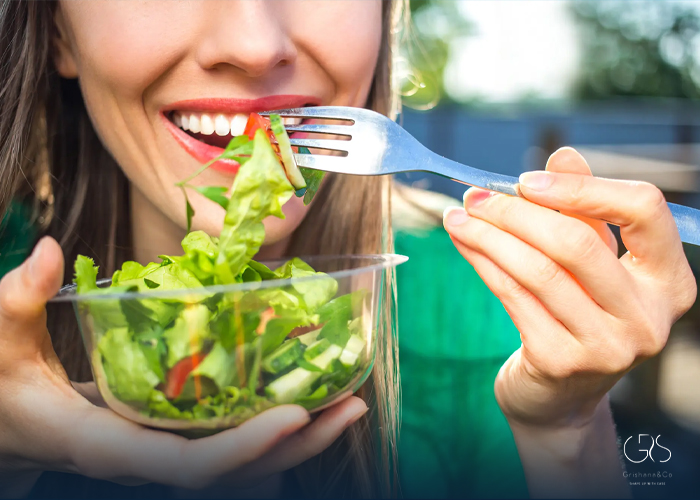Weight loss is a common goal for many individuals who wish to improve their overall health and well-being. With so much information available, it can be overwhelming to determine the most effective strategies to achieve weight loss. However, nutritionists have identified several key tips that can help individuals successfully shed pounds and maintain a healthy weight. In this article, we will explore the 11 best weight loss tips, backed by a nutritionist, along with relevant statistics and diverse perspectives.
1. Choose Filling Foods
When attempting to lose weight, selecting filling foods is essential. These are foods that provide a sense of satiety and help control hunger. According to studies conducted by the European Journal of Clinical Nutrition , foods high in protein and fiber are particularly effective in promoting a feeling of fullness. Incorporating lean proteins such as chicken, fish, and tofu, as well as fiber-rich foods like whole grains, legumes, and fruits, into your diet can help curb cravings and prevent overeating.
2. Eat More Vegetables
Incorporating vegetables into your meals is a great way to promote weight loss due to their low calorie count and high nutrient density. Eating a variety of vegetables, such as leafy greens, cruciferous veggies like broccoli and cauliflower, and colorful options such as bell peppers and carrots, can aid in digestion and make you feel fuller longer due to the high content of fiber they provide.
(To learn about the Benefits of Carrots, please refer to this article.)

Vegetables to Consider
When it comes to weight loss, certain vegetables stand out for their nutritional benefits. Kale, for example, is nutrient-dense and low in calories, making it an ideal choice for those looking to shed pounds. Other vegetables such as spinach, Brussels sprouts, and zucchini are similarly nutritious and can be easily incorporated into a variety of meals.
(For information on the benefits of spinach, please consult this article.)
3. How to Add More Vegetables to Your Diet
Increasing vegetable consumption may seem challenging, but there are several strategies you can employ. Firstly, try to include vegetables in every meal by incorporating them into dishes such as stir-fries, salads, and soups. Experimenting with new recipes can also make eating vegetables more enjoyable. For example, spiralizing zucchini can serve as a low-calorie alternative to traditional pasta noodles, reducing calorie consumption without sacrificing taste.
4. Drink Enough Water
Water is a vital component of a healthy diet, and it plays a crucial role in weight loss. Studies conducted by the Journal of Human Nutrition and Dietetics indicate that water consumption can enhance weight loss efforts. Drinking water before meals can help reduce calorie intake by promoting a feeling of fullness. Additionally, substituting sugary beverages with water can significantly reduce overall calorie consumption.

5. Have a Regular Eating Schedule
Establishing a regular eating schedule is an effective strategy for weight loss. The National Institutes of Health emphasize that irregular meal patterns can lead to weight gain, as they disrupt metabolism and hunger-regulating hormones. Consuming meals at consistent times each day helps regulate appetite and prevents overeating. It is important to prioritize a balanced and portion-controlled meal plan to support healthy weight loss.
6. Aim for Balance With Your Meals
Maintaining a balanced diet is essential for optimal weight loss results. The American Heart Association recommends including a mix of macronutrients in each meal. Balancing carbohydrates, proteins, and fats facilitates satiety and provides the necessary fuel to sustain energy levels throughout the day. Opt for whole-grain carbohydrates, lean proteins, and healthy fats, such as those found in nuts, avocados, and olive oil.
(I suggest you read my article on avocado consumption. It provides more information on the topic)
7. Foundations of a Healthy Meal
Building a healthy meal involves incorporating the right components. According to the United States Department of Agriculture , a well-balanced meal should consist of half a plate of vegetables and fruits, one-quarter of lean proteins, and one-quarter of whole grains. This composition ensures a nutrient-rich and portion-controlled meal that supports weight loss.
8. Accessories to a Healthy Meal
In addition to the main components of a meal, certain accessories can elevate its nutritional value. Herbs and spices, such as turmeric, cinnamon, and ginger, not only enhance flavor but also provide antioxidants and anti-inflammatory benefits. Adding a small amount of healthy fats, like a drizzle of olive oil or a sprinkle of nuts, can further enhance satiety and improve nutrient absorption.
9. Watch Your Alcohol Intake
Alcohol consumption can be detrimental to weight loss efforts. Alcoholic beverages are high in calories and can quickly contribute to an excessive calorie intake. According to a study published in the American Journal of Clinical Nutrition , alcohol consumption can lead to increased hunger and decreased inhibitions, ultimately resulting in overeating. It is crucial to moderate alcohol intake and replace high-calorie drinks with lower-calorie options, such as sparkling water or unsweetened tea.
10. Save Room for Your Favorite Foods
Deprivation is not sustainable, and completely eliminating favorite foods may lead to frustration and abandoning weight loss goals. Registered dietitian, Sarah Koszyk , recommends enjoying indulgent foods occasionally while maintaining portion control. By allowing room for favorite foods within a balanced diet, individuals are more likely to adhere to their weight loss journey in the long term.
11. Ensure You Eat Enough Food
While calorie reduction is essential for weight loss, it is equally important to ensure one consumes enough food to support overall health. Severely restricting calories can have adverse effects on metabolism, muscle mass, and nutrient deficiencies. Seeking guidance from a nutritionist or registered dietitian can help determine an appropriate calorie intake that promotes weight loss while ensuring adequate nutrition.
Recognize When You Have Physical or Emotional Hunger and Seek Support
Weight loss involves not only physical, but also emotional components. Distinguishing between physical and emotional hunger is crucial for weight management. Emotional eating can often hinder weight loss progress. Seeking support from a therapist, counselor, or support group can provide valuable tools and strategies to address emotional triggers and develop healthy coping mechanisms.
Conclusion
Embarking on a weight loss journey can be challenging, but with the right strategies, success is within reach. The 11 best weight loss tips presented here, according to a nutritionist, offer a comprehensive approach to achieve sustainable weight loss. By incorporating filling foods, prioritizing vegetables, drinking enough water, following a regular eating schedule, aiming for balance, and seeking support when needed, individuals can make significant strides towards their weight loss goals.
It is important to note that weight loss is a personal journey, and what works for one individual may not work for another. Consulting a healthcare professional, such as a registered dietitian, is essential to personalize a weight loss plan based on individual needs and preferences. Furthermore, diverse perspectives and experiences should be respected, as everyone’s journey towards weight loss is unique.
Sources
- National Library of Medicine, Diet induced thermogenesis
- Mayo Clinic, Nutrition and healthy eating
- National Institutes of Health, National Heart, Lung, and Blood Institute










